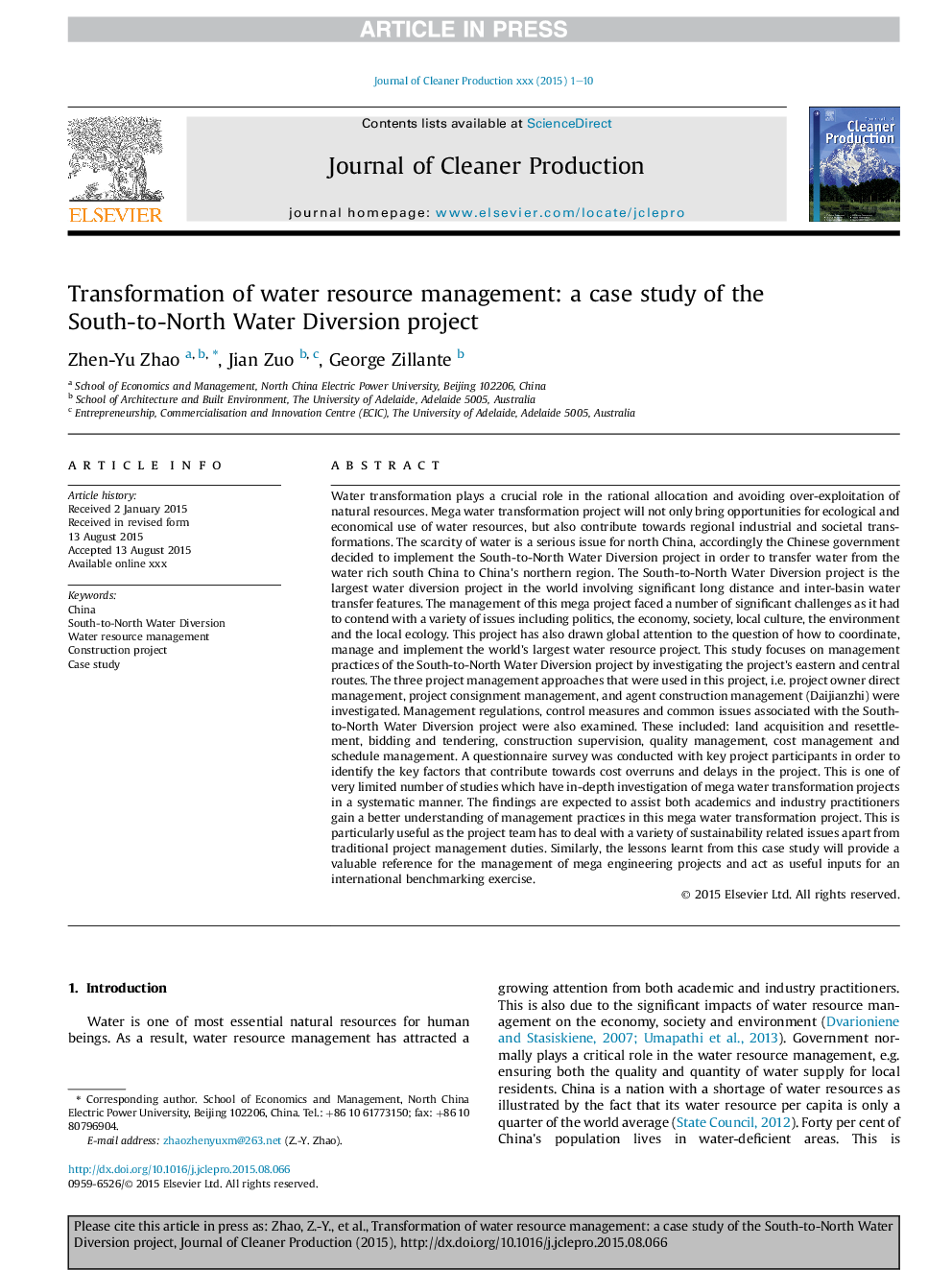ترجمه فارسی عنوان مقاله
تغییر مدیریت منابع آب: یک مطالعه موردی پروژه "انحراف آب" از جنوب تا شمال
عنوان انگلیسی
Transformation of water resource management: a case study of the South-to-North Water Diversion project
| کد مقاله | سال انتشار | تعداد صفحات مقاله انگلیسی |
|---|---|---|
| 90687 | 2017 | 10 صفحه PDF |
منبع

Publisher : Elsevier - Science Direct (الزویر - ساینس دایرکت)
Journal : Journal of Cleaner Production, Volume 163, 1 October 2017, Pages 136-145
ترجمه کلمات کلیدی
چین، جابجایی آب از جنوب به شمال، مدیریت منابع آب، پروژه ساخت و ساز، مطالعه موردی،
کلمات کلیدی انگلیسی
China; South-to-North Water Diversion; Water resource management; Construction project; Case study;

